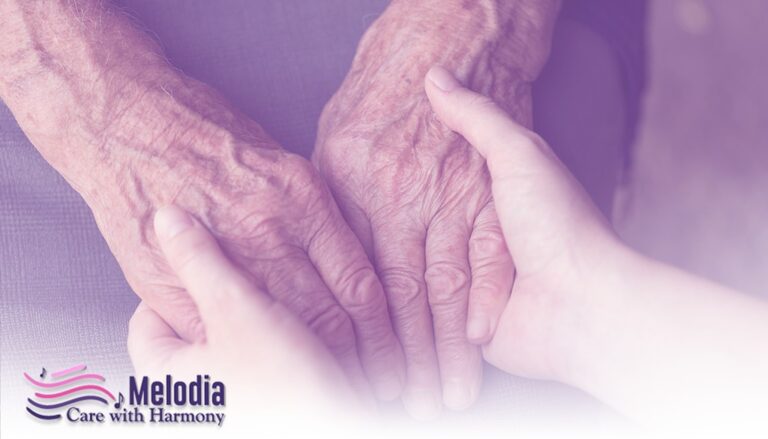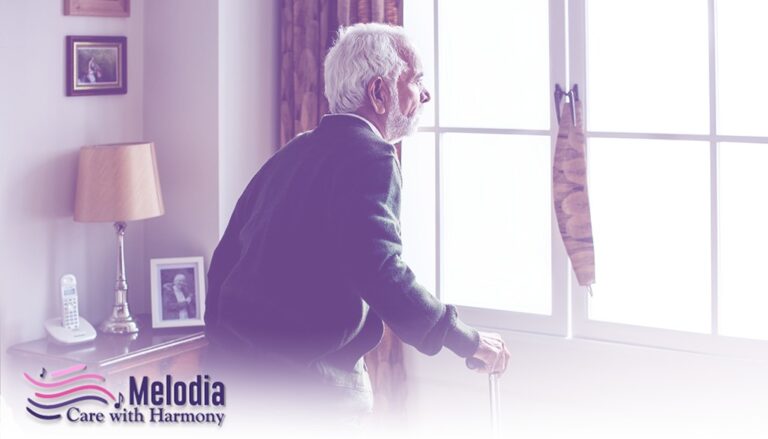Hospice Emotional & Spiritual Care In San Francisco East Bay, California
As an element of hospice care, spiritual care or Emotional care, is critical to helping patients and their families cope with the end-of-life and grief process.
Spiritual counselling can be beneficial to anybody, regardless of religious or philosophical affiliations, regardless of whether they perceive themselves to be religious or not.
A hospice chaplain is a spiritual advisor who has received specialized training to assess the unique requirements of each person they serve and to meet them where they are spiritually. Spiritual counsellors do not aim to influence their clients’ beliefs. Because they are trained to be active listeners, they help people by guiding them through their own questions and feelings and providing insight or inspiration when necessary. They can also help patients think about and prepare a memorial or life celebration.
The Definition Of Spiritual Care

The term “spiritual” has a wide range of connotations, depending on the context in which it is used. However, what does it signify in terms of hospice care?
This intangible spark that makes you unique—the unique way you derive meaning and significance from your existence—and the crucial relationships in your life can be cared for through hospice care. That might entail some sort of religious or cultural tradition for some people, but it doesn’t have to.
Hospice chaplains are trained to help patients and their loved one’s cope with their personal experiences of illness, loss, and grief—whatever they may be—while physicians, nurses, psychologists and medical social workers all work together to help patients and their loved ones get the care they need.
Spiritual care is beneficial for every patient at any time of day or night. A supporting presence who can spend time with them to help them find meaning and purpose in their suffering is described in an article published by the British Association of Critical Care Nurses as “people of all faiths, and no faith. If you’re a hospice patient dealing with anxiety over nearing death, Melodia can be extremely helpful.
Social workers make a significant difference in the lives of patients and their families by providing psychosocial and emotional support. It is equally important to Melodia to have a Spiritual Care Coordinator on staff as a vital member of the interdisciplinary team who is responsible for providing spiritual support.
These Are Three Methods For Assisting Your Patients In Seeking Spiritual Guidance
Inquire of your patients about their religious beliefs or lack thereof. Assist them in making connections with other members of their religious community or congregation, as well as with the leader or leaders of their religious community. Patients and their families may experience reluctance to reach out at times because they do not want to be a burden on others. As a result, they may require encouragement to do so.
First and foremost, find out as much as you can about your patient’s and/or their family’s beliefs and hobbies. Then, look for patient-oriented books on death and dying in bookstores or on the internet to recommend to patients in the proper manner.
Inquire with a member of the Melodia Care team about establishing a connection with the Spiritual Care Coordinator.
Those In Charge Of Spiritual Care At Melodia
Melodia interdisciplinary care team and specifically our Spiritual Care Coordinators, are responsible for providing specialized spiritual care to our patients and their families. Melodia care team are constantly on call to provide patients and bereaved families with counselling that is appropriate for people of all faiths—or no faith at all—and are available 24/7.
The Definition of Emotional Care

It is understandable that terminally sick patients may be depressed, anxious or angry because of their predicament. Patients may also feel regrets about things they have said or done, or things they never had the chance to say or do, as they reflect on their life. A patient’s quality of life can be significantly impacted by all of these things. By engaging with hospice patients, listening to their stories and solving their problems, hospice social workers are able to provide emotional support to those in hospice care.
Those who care for a loved one can also benefit from emotional assistance. Grief and fear are felt by caregivers when a loved one is nearing death. As a result of the incident and hostility against other members of the family. The patient’s family members may be under a lot of stress due to the patient’s disappointments, disagreements and drug-related issues.
It’s understandable if you’re afraid of upsetting the person who is dying if you bring up the subject of death. Knowing that people who are dying often want to communicate about their situation but are afraid of offending their caregiver, family member or friend may be helpful. It can be tough to begin a conversation, but the opportunity to share your thoughts and feelings can be helpful to both of you.
As the person you’re caring for nears the end of their life, there are still many ways to spend time with them.
- Don’t chat to them while you’re sitting next to them.
- Ask for a book to read
- Sing a song
- Tell them you love them and that your family is thinking about them
- Share a memorable remembrance or experience the two of you experienced
So, What Exactly Does It Mean To Be In Emotional Distress?

When a person’s feelings and thoughts become overwhelming, they are said to be experiencing emotional (or psychological) discomfort. The emotions of depression, anxiety, and panic are all manifestations of emotional distress.
Emotional distress can be brought on by a variety of factors, including the following:
- Physical symptoms such as pain or nausea are examples.
- Individuals with terminal illnesses, as well as those close to them, such as spouses, family members and close friends, may suffer from emotional distress. Social isolation and unstable relationships are two examples of social isolation. Loss of independence and fear of death are two examples of fear of death.
What Criteria Should Be Used To Determine Emotional Needs?

It is not always straightforward to determine how well someone is doing. Encourage them to express their emotions and to listen to them without passing judgement on what they are saying. Some services use questions as part of their screening process and others do not. When you ask the person to rate their level of distress on a scale of 0 to 10, with 0 representing no discomfort and 10 being the most severe potential suffering, it will be easier to determine how they’re feeling about themselves.
Is There A Connection Between Religion And Spirituality?

Some people react with “spiritual and religious.” Others respond with “other.” We need to figure out how to make sense of these two themes, which are in fact distinct but related. One method is that religion can be used in conjunction with spirituality, or vice versa, in some cases. Yet another approach is to think of spirituality as a larger construct in which the quality of sacredness is experienced through religious practices or other ways of engaging with the Divine. Religion and spirituality, on the other hand, are arguably best treated as distinct but intertwined concepts.
What Is The Function Of A Spiritual Care Counselor?

Licensed Professional Spiritual Care Counselors (SCCs) at Hope Hospice have completed at least one year of hospital residency and have been ordained by and are answerable to an established ordaining body.
Professionals have studied a wide range of religions, civilizations and spiritual practices as part of their educational experience. At the end of life, the Professionals are educated to provide a ministry of presence to the patient and their family, no matter where they are on their spiritual path at the time. The Professionals provide active listening, reflective presence, as well as emotional, experiential and spiritual therapy to anyone in need of assistance. Sometimes the answer consists of a religious ceremony or prayer that is appropriate for the situation. Occasionally, the answer is spiritual affirmation rather than religious affirmation. In certain cases, it is neither spiritual nor religious in nature.
What Is The Most Effective Method Of Offering Emotional And Spiritual Support?

A chat with someone about their thoughts can be scary at first, but it is necessary. It is possible to help both yourself and your partner feel more comfortable by taking a number of steps. Music, a massage, gazing at photographs, or anything else that the individual finds enjoyable can help them feel more comfortable and open up about their feelings.
The expression of all emotions, including fury and denial, is legitimate and can be useful to the individual at different phases of their condition. Perhaps our information on mental and spiritual anguish will be of assistance to you in sharing it with your patients.
It takes time to get to know someone and understand their background, as well as their experiences and unique circumstances, in order to build a successful connection. Working shifts or not seeing the same patients on a regular basis can make this more difficult to accomplish. It is possible to make someone feel comfortable and supported by giving them a hug or holding their hand, if the situation is appropriate and they consent.
Encourage them to communicate their fears and anxieties by encouraging them to speak about them in front of others.
Maintaining an optimistic outlook may be advantageous, but it is important not to minimize the difficulties the individual is experiencing. Alternatively, you might inquire as to how the individual would prefer to be emotionally supported – some people prefer a ‘upbeat’ approach, while others would rather just have you simply listen to them.
It is common for someone suffering from a terminal illness to be depressed and concerned about the individuals who will be left behind after they die. Assist them in creating a memory box to give them the assurance that they will continue to be a part of their loved ones’ lives even after they have passed away. A memory box can be used to store items such as letters and gifts for family and friends, as well as items for yourself. A film or audio recording can also be prepared for digital storage on a memory stick or the internet by a professional.
People may be anxious that as their disease progresses, they will lose their ability to control their actions. Assist someone in communicating their preferences for their medical care ahead of time to help them feel more in control. Health professionals and people close to the person can benefit from having a better grasp of their priorities as a result of this. You might find it useful to offer our patients with information on care planning in advance of their appointments with you.
A core tenet of hospice care is to attend to the physical, emotional and spiritual needs of patients who are nearing the end of their lives. Melodia Care gives spiritual, physical and emotional support to patients so that they can make the most of each day that they have left to spend with their families.
You may reach Melodia Care at 8886356347 if you know someone who would benefit from hospice care or if you would want to learn more about the hospice care program offered by the company.
You can reach us at any time of day or night by contacting us through our 24/7 online customer support chat or by calling 1-888 635-6347 (MELODI-7).
